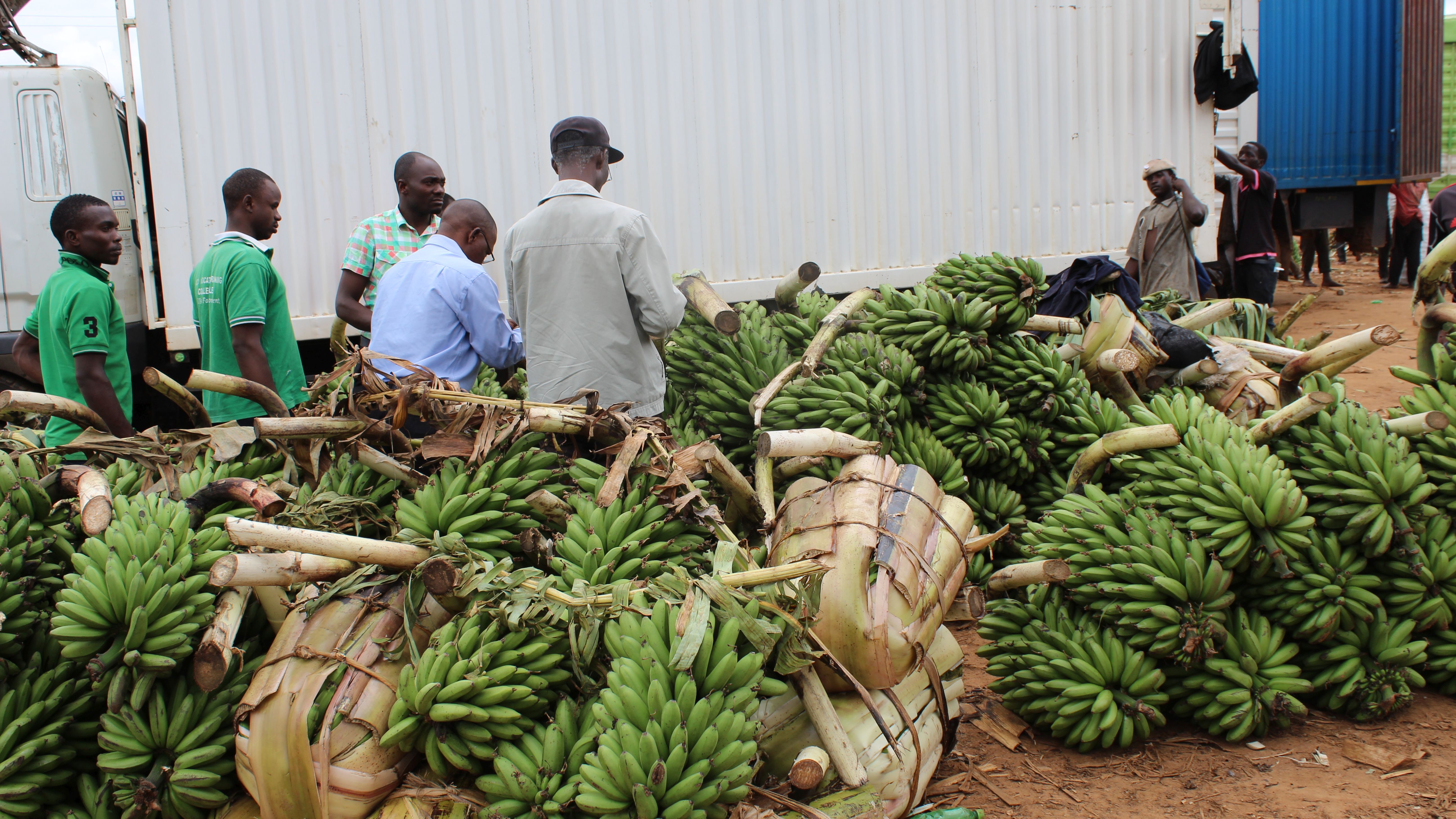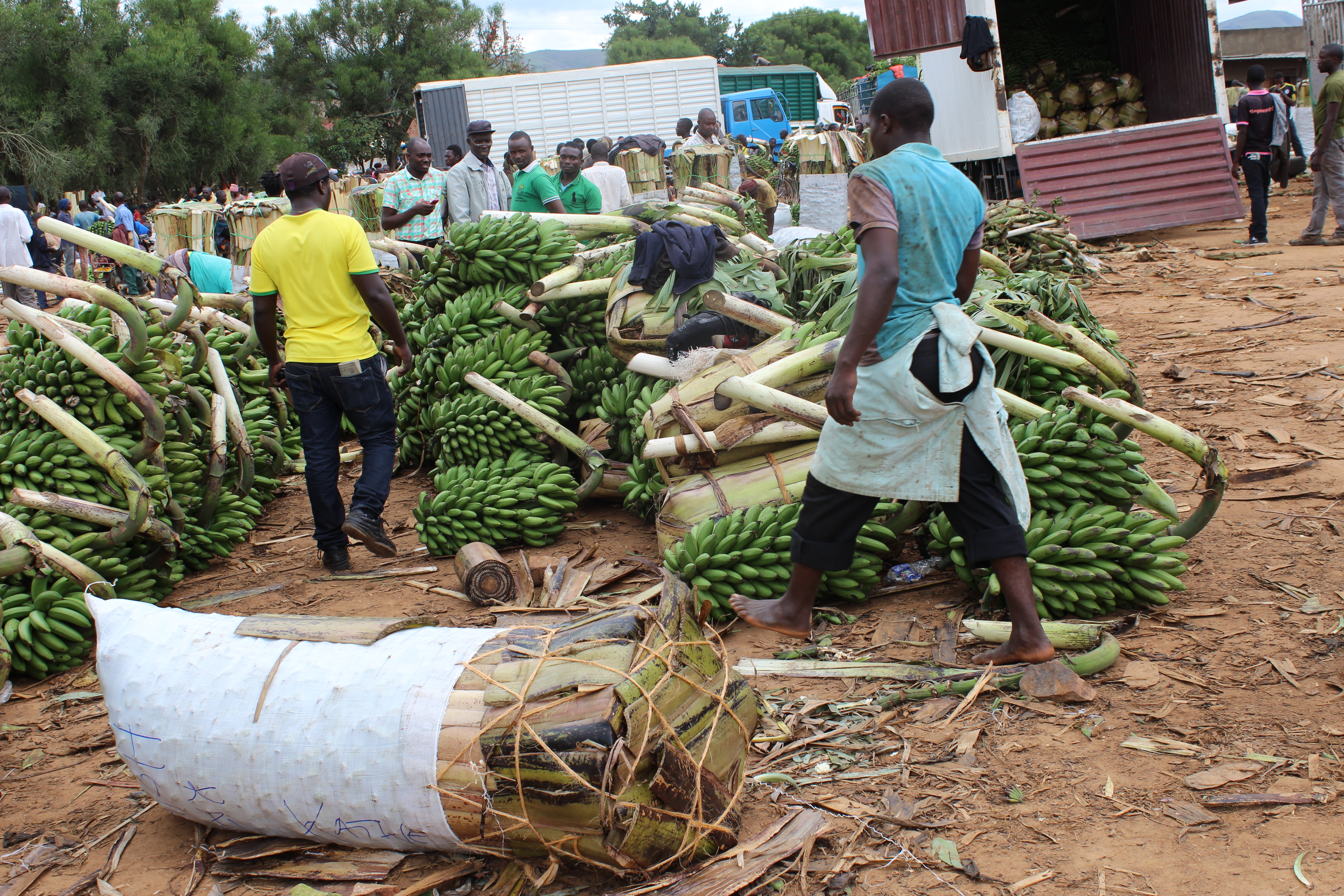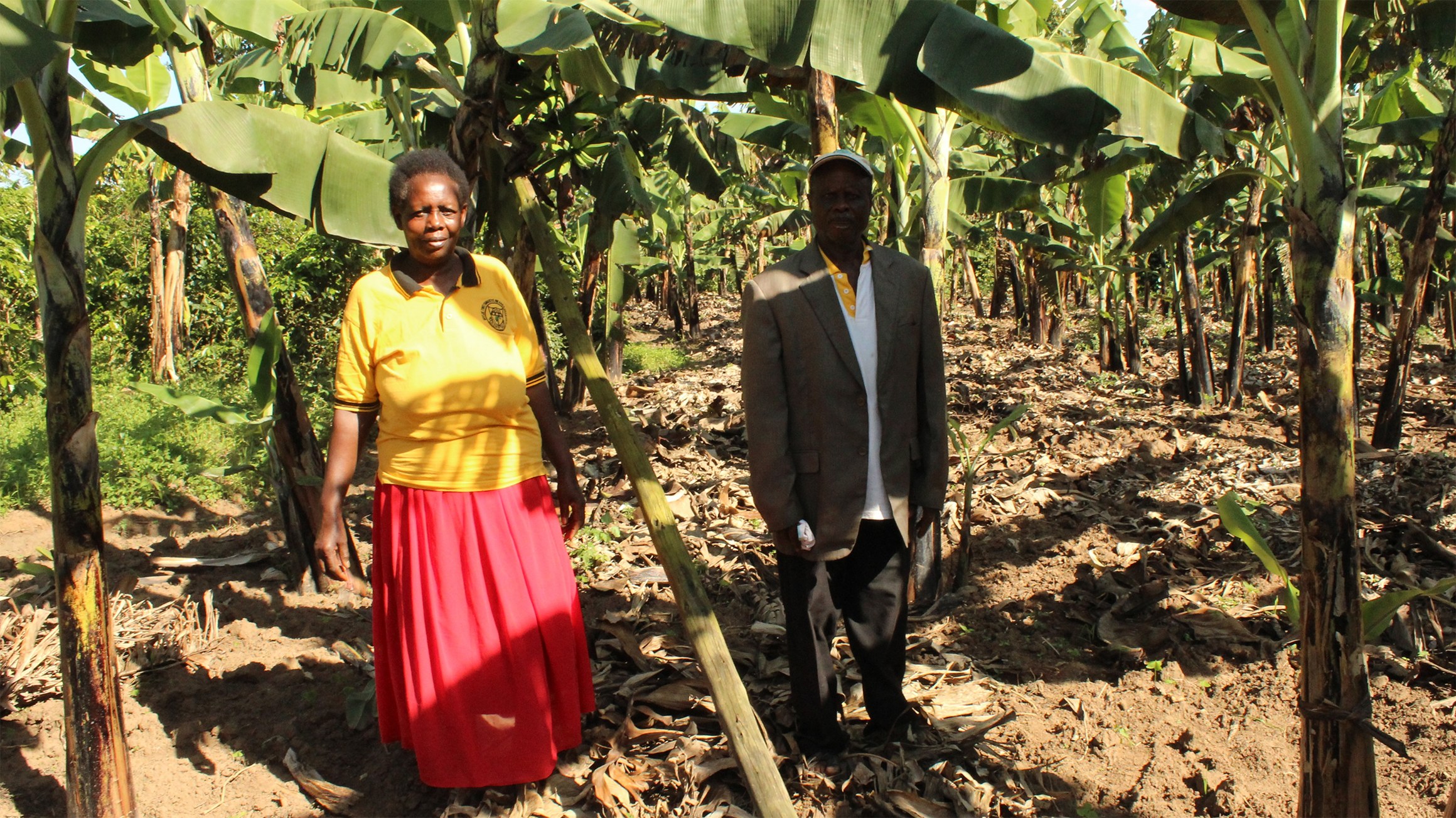

Building climate change resilience of banana farmers in Western Uganda
05 April 2019 UNIDO

Climate-resilient banana farmers in Uganda
Stanley Rwabukye is a man dedicated to his land. His passion for farming is well reflected in the way he manages his banana plantation and tends to the few herds of cattle he owns. Like most Ugandan farmers, Rwabukye wakes up at the crack of dawn and heads to his fields where he spends the better part of his day digging, weeding and pruning. Despite his 76 years of age, he is still full of youthful vigour.
“I wake up every day at 4:00 A.M to work on my garden. This is what I am good at. Bananas are a staple crop in this area. It is our food, but we also sell it to earn some income,” Rwabukye said.

Bananas are grown extensively in Western Uganda and are an important source of livelihoods. Bananas in all shapes and sizes make their way to markets in Uganda and the East Africa region.
The region is however one of the most vulnerable to the effects of climate change. Changing rainfall patterns and increasing temperatures have led to a decline in crop yields, susceptibility to disease and fluctuating crop prices due to losses from the over-ripening of the fruits which reduces the shelf-life of the bananas.
For all the value they have as staple diet, they are not as lucrative a cash crop as they should be.
With funds from the Global Environment Facility (GEF), the United Nations Industrial Development Organization (UNIDO) is supporting vulnerable communities in Western Uganda to better adapt to the effects of climate change by providing greater opportunities for income generation, poverty reduction and food security.
Disease-free planting materials for a sustainable banana industry
Amon Natwebembera, Bushenyi District Agriculture Officer, explained that before UNIDO’s intervention, farmers were grappling with an infestation of Banana Bacterial Wilt (BBW) and low yields, which affected their capacity to attract decent prices. “We had a big problem with BBW which had destroyed entire plantations in some villages, but since the project started, the incidence has reduced because farmers have been trained in good farming practices,” Natwebembera said.
UNIDO, in partnership with the Ministry of Trade, Industry and Cooperatives, and the Ministry of Agriculture, Animal Industry and Fisheries, supported an indigenous agribusiness company with the development and supply of clean tissue-culture banana plantlets to enable farmers like Rwabukye to build resilience to climate change.
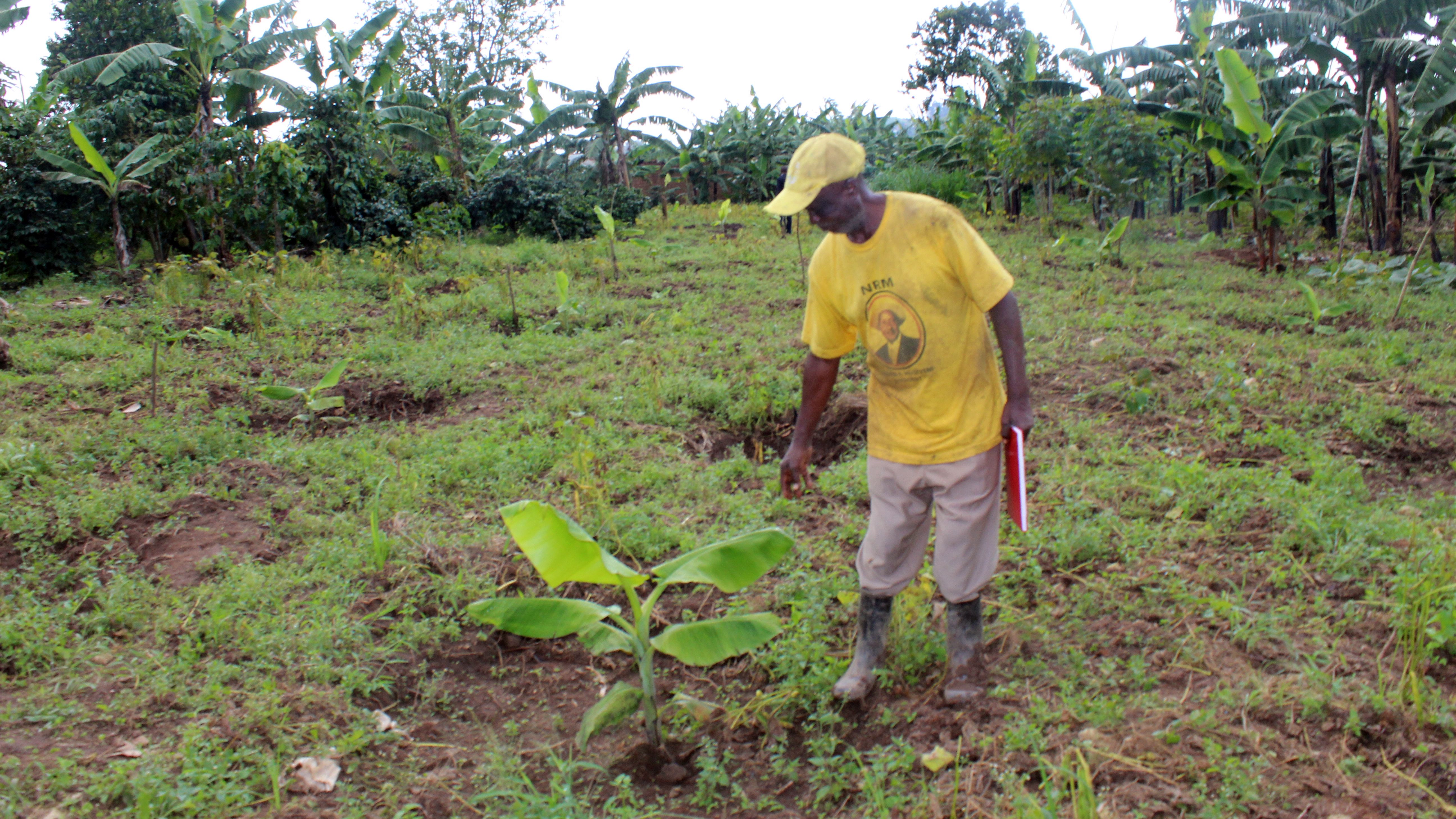
“The benefit of starting with clean planting material and a clean garden is that the plantation will establish very well and your job as a farmer is to make sure you don’t get the infection,” said Kephas Nowakunda, Team Leader at National Agricultural Research Organisation (NARO).
If managed well, such a plantation can last up to five or seven years without being infested with pests or diseases. This means that farmers are able to get higher yields and earn more income by selling to processors along the banana value chain.
In October 2017, Rwabukye received 350 banana plantlets and now boasts of a well-established plantation. Model farmers like Rwabukye are supplying clean planting materials to other vulnerable farmers, who are increasingly aware of the advantage of these high-yielding banana varieties.
In total, UNIDO supplied 71,000 tissue-culture plantlets to 200 banana farmers in the eight project districts in Western Uganda, namely Bushenyi, Mbarara, Sheema, Isingiro, Ntungamo, Buhweju, Rubirizi and Mitooma. A total of 2,500 farmers are expected to benefit in the long-run.
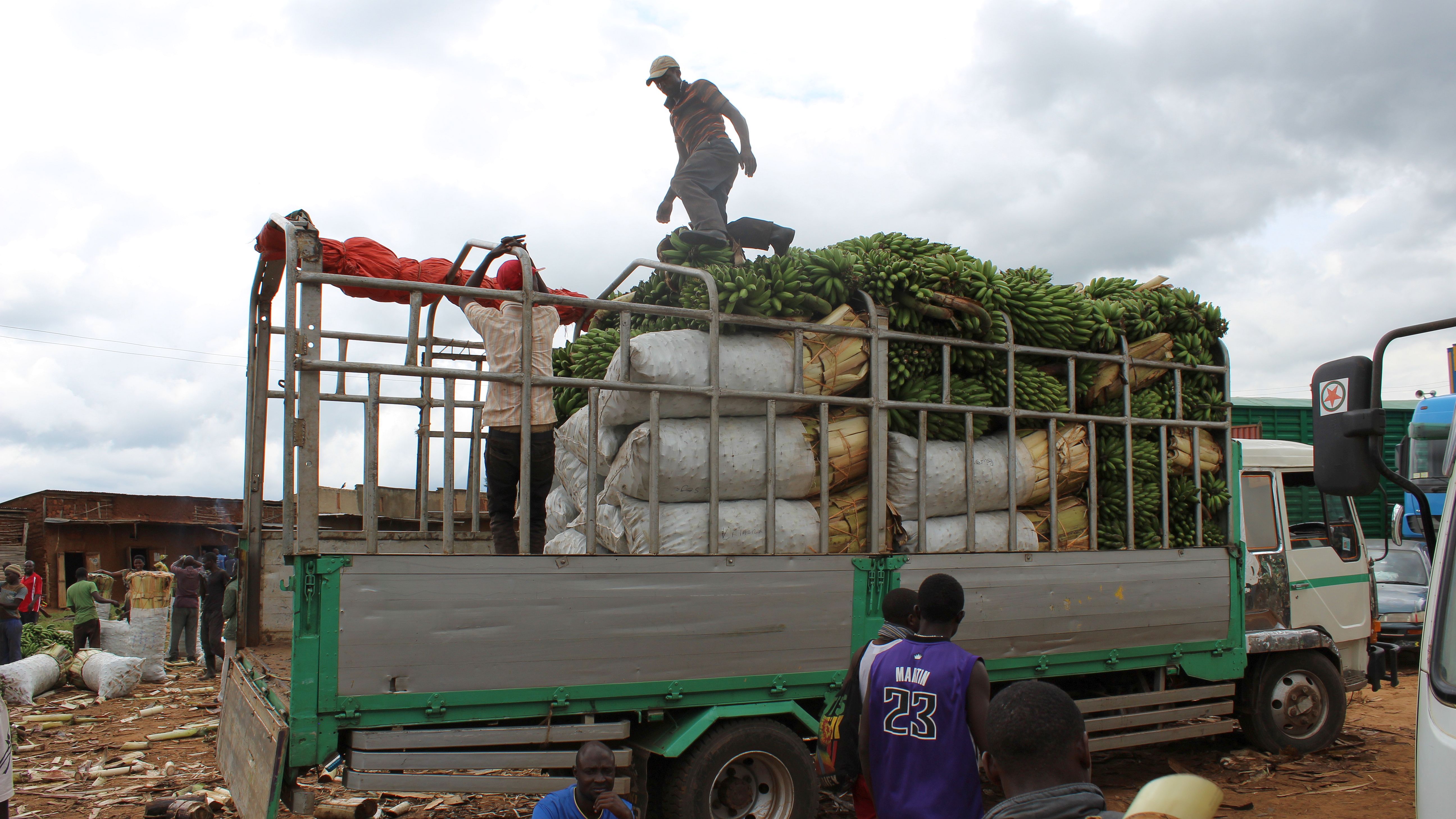
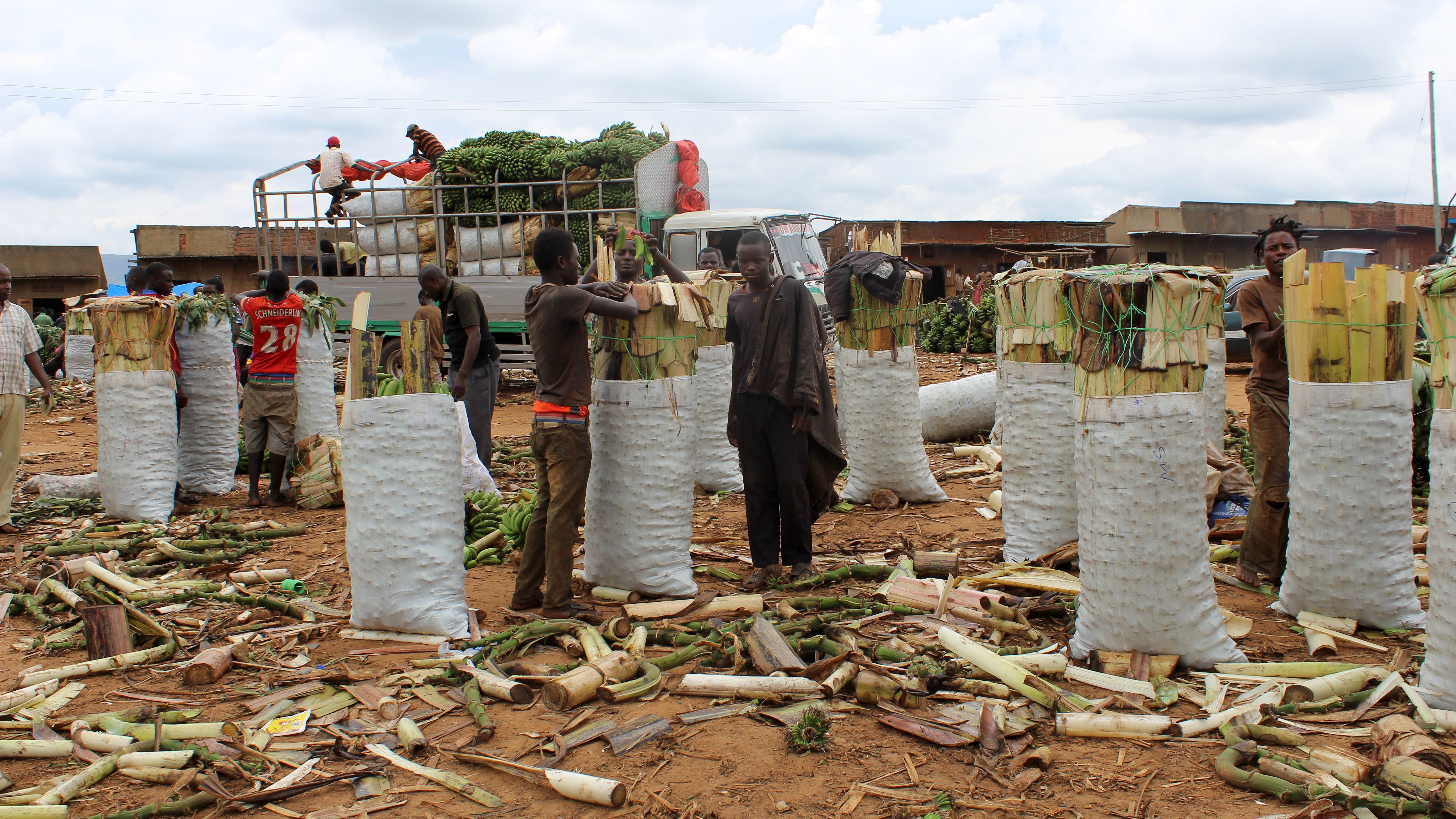
Supporting farmers and entrepreneurs with value addition activities
The project also addresses the issue of losses in farmers’ income due to the poor quality of fresh fruits. Transforming fruit that cannot be sold into other high value products such as banana juice, wine, flour, and snacks, has become an important source of livelihoods for hundreds of households.
During the project, UNIDO supported the Rutunguru Cluster – which mostly produces for the export market – with an upgraded processing facility that meets national standards. This is expected to boost the cluster’s production capacity.
“It was a hardship working in the small block we had. Now, we are anticipating that, with this new building and new structure, we shall at least double our efforts and have more work,” said Angel Mujurizi Salongo , Chairman of the Rutunguru Cluster.
Through this intervention, UNIDO is realizing its mandate to promote and accelerate inclusive and sustainable industrial development and supporting Uganda in achieving the Sustainable Development Goals (SDGs), especially SDGs 1 on no poverty; 2 on zero hunger; 9 on industry, innovation and infrastructure; and 13 on climate action.
By Judith Atim
